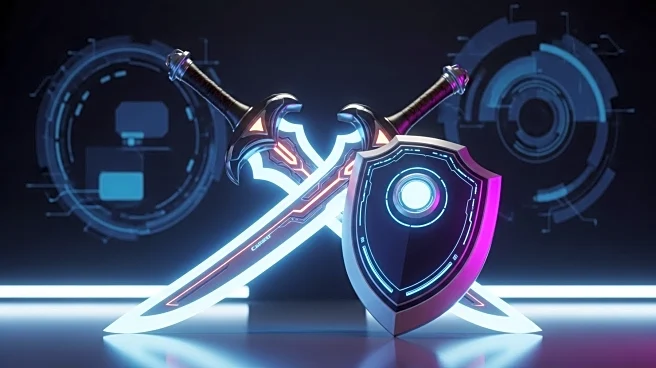What's Happening?
Bandai Namco has announced the sequel to its action RPG, Code Vein, titled Code Vein 2. The game is set to offer a more refined experience with improved gameplay mechanics and character customization options. The developers have disavowed any plot connections to the original game, which has raised concerns among fans. However, the sequel is described as a 'soft reboot,' maintaining the core philosophy of Code Vein while introducing new elements. The game features a robust character creator, allowing players to tweak minute details, and introduces new gameplay dynamics such as partner dynamics and time travel elements. The game is not open world but offers a single overworld with interconnected zones.
Why It's Important?
The announcement of Code Vein 2 is significant for the gaming industry, particularly for fans of action RPGs. The original Code Vein was well-received for its deep character creation and engaging gameplay, and the sequel promises to build on these strengths. By offering a 'soft reboot,' Bandai Namco aims to attract both new players and fans of the original game. The introduction of new gameplay elements like time travel and enhanced partner dynamics could set a new standard for action RPGs, influencing future game development in the genre.
What's Next?
As Code Vein 2 progresses towards its release, fans can expect more detailed previews and gameplay demonstrations. Bandai Namco will likely continue to refine the game based on feedback from early previews and hands-on sessions. The gaming community will be watching closely to see how the new elements, such as time travel, are implemented and how they affect the overall gameplay experience. The success of Code Vein 2 could lead to further expansions or sequels, solidifying its place in the action RPG genre.
Beyond the Headlines
The development of Code Vein 2 highlights the growing trend of 'soft reboots' in the gaming industry, where developers retain core elements of a game while introducing new features to attract a broader audience. This approach allows for innovation without alienating existing fans. Additionally, the focus on character customization reflects a broader industry trend towards personalization and player agency, which can enhance player engagement and satisfaction.










